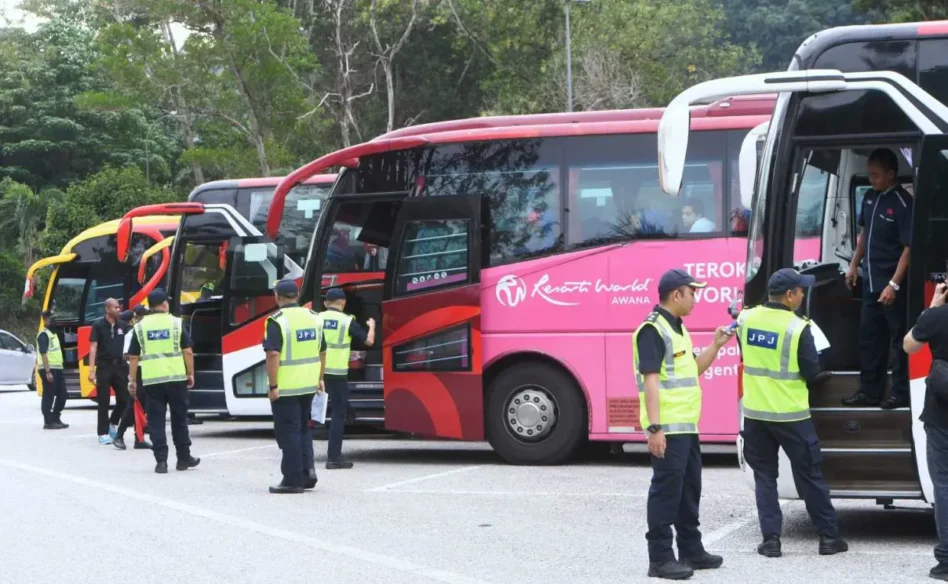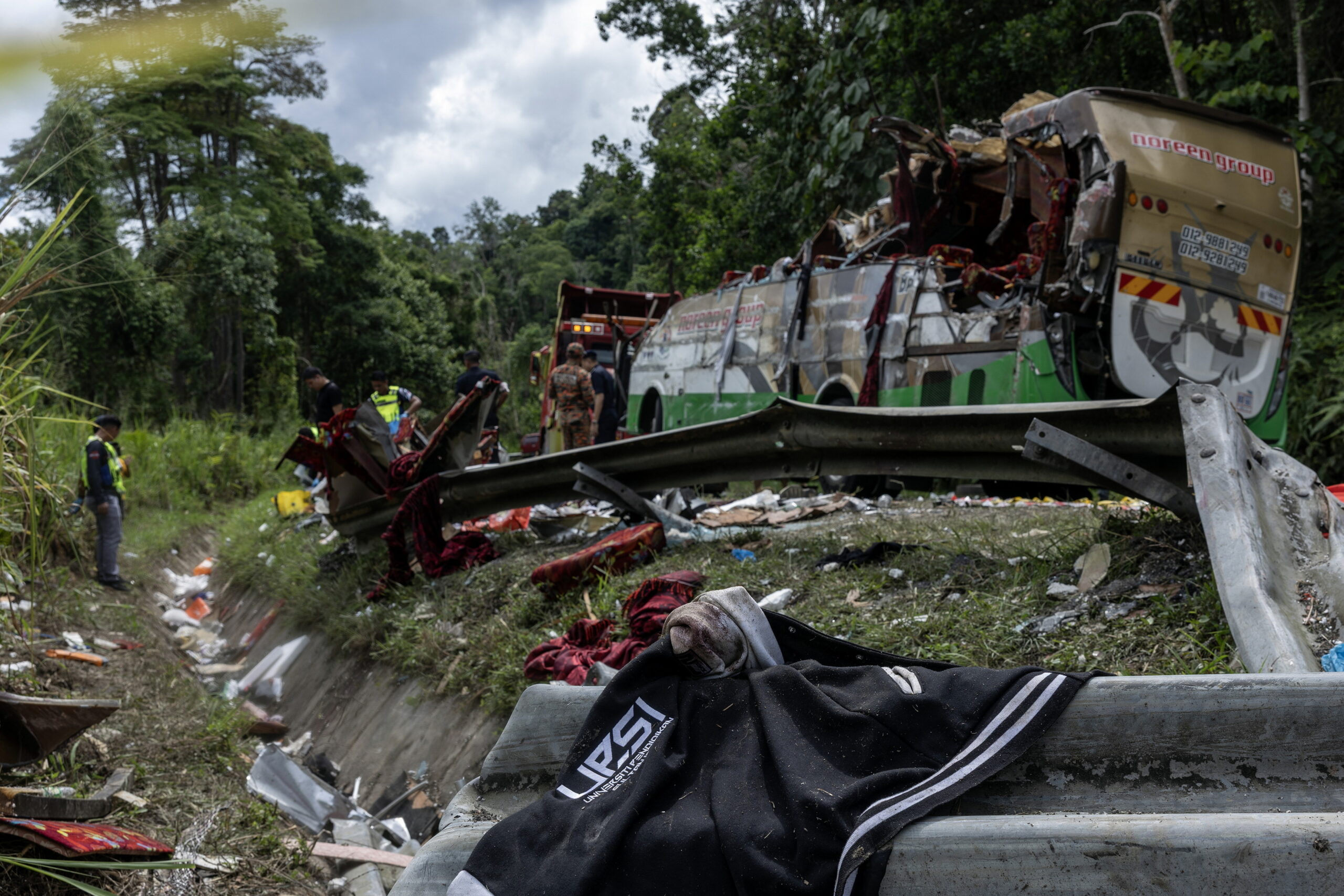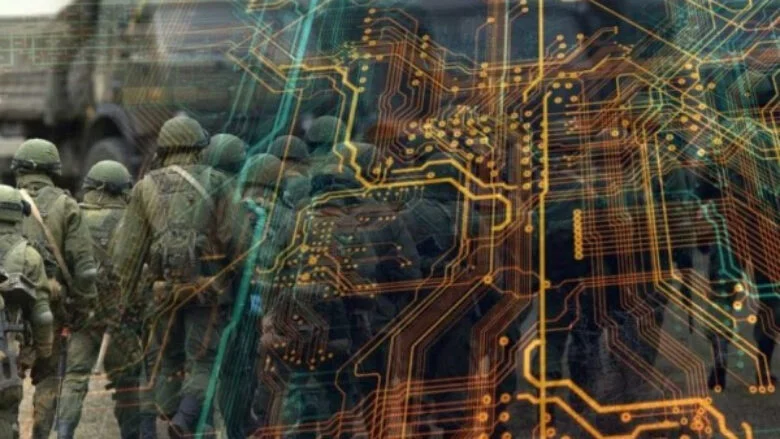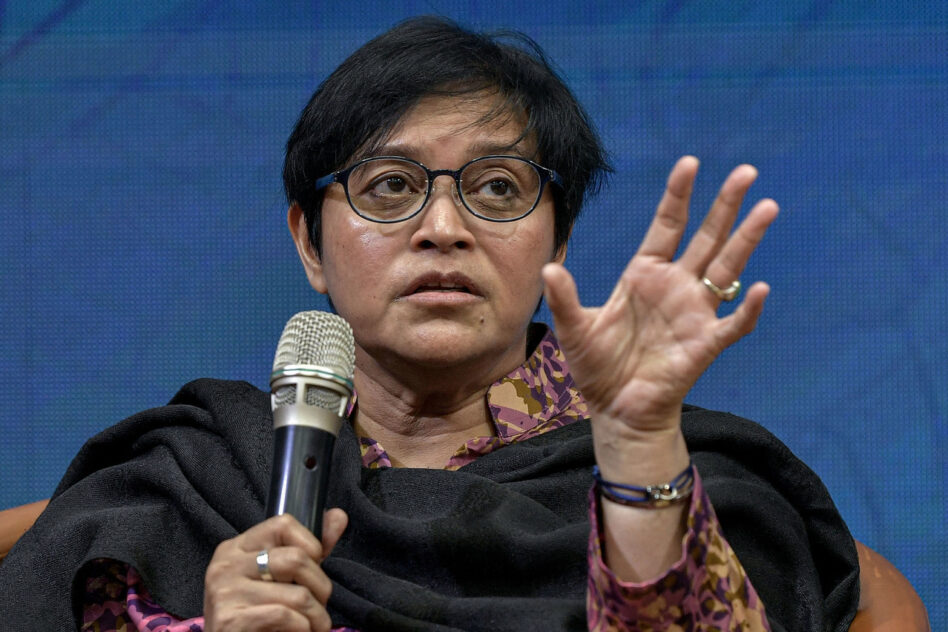ON June 9, 15 Universiti Pendidikan Sultan Idris (UPSI) students were killed and 33 others injured when a chartered bus plunged off a hillside near KM53 of the East-West Highway. They were on their way back to campus after the Aidiladha holidays.
The crash shook the nation. For me, it struck even closer. By happenstance, Gerik is my mother’s hometown. When I saw the images of the twisted bus, the bent guardrails, and the familiar hills in the background, I felt a chill of recognition. This wasn’t just a tragic headline. It was personal.
Notwithstanding my personal connection, the experience behind the tragedy is all too relatable for university and boarding school students across Malaysia.
We have all taken those overnight buses. It was nerve-wracking to say the least. We’ve felt the driver speeding or overtaking on winding roads. We looked at each other, uneasy.
Most of the time, we slept, or in my case, pretended to with my eyes shut, because I usually have trouble sleeping in a moving vehicle. It was easier not to see what was unfolding outside the window.
But ultimately, we said nothing. The reason is simple. We were too young to speak up. And too scared of the consequences. Those who have experienced such journeys will know that the power distance between driver and passenger is real.
Speaking up felt rude, even disrespectful. Worse, we feared being told to get off. And when you’re young, broke, far from home, and without alternatives, silence often feels like the safer choice.
Public outcry and official response
This time, the silence didn’t last. The crash triggered an outpouring of grief, anger and demands for accountability. On campuses, and across social media, the public made itself heard.
On June 13, the Road Transport Department (JPJ) announced a key enforcement shift. From October 1, all express buses, tour buses, and heavy goods vehicles must pass inspections to verify the use of functioning speed limiters.
I don’t know about you, but for me, it begs a simple yet powerful question: why did it take a tragedy to enforce such a rule?
What’s truly mind boggling is that speed limiters were first proposed by then Transport Minister Tun Ling Liong Sik about two decades ago.
Three measures that could save lives

While the government’s response marks progress, systemic reform is still needed. The following three measures are essential if Malaysia is serious about preventing another tragedy.
First, with speed limiters now mandated for all chartered and long-distance buses, the next step is to link them to a real-time GPS system and make the data public—much like how Flightradar24 transformed transparency in air travel.
A similar system for long-distance buses could allow families, schools, and passengers to monitor routes, speeds, and delays in real time.
This would not only build public trust but also create a culture of accountability where dangerous driving can no longer hide in the dark.
Second, Malaysia must create a transparent driver registry that records traffic summonses, safety violations and disciplinary actions. This database should be accessible to schools, universities, companies, and the public.
In Australia, following the 2023 Hunter Valley crash, safety reforms now include visual seatbelt alerts and new design rules for passenger coaches. These came alongside growing calls for transparent driver safety records.
Such tools help restore trust while holding repeat offenders accountable. Commercial drivers with repeated offences must be permanently disqualified from transporting passengers.
Third, seatbelts must be compulsory for every seat—not just those in the front row. In the United States, federal law has required lap and shoulder belts in all new motorcoaches since 2016.
Scotland made seatbelts mandatory on school transport under the Seat Belts on School Transport (Scotland) Act 2017. Australia will require seatbelts on all new coaches from late 2026, with audio-visual reminders to ensure usage.
To be fair, such a move would impose significant costs on operators. Western Australia addressed this by allocating AU$87 mil (RM265.35 mil) to retrofit all school buses. Malaysia should adopt a similar approach.
Targeted grants or tax incentives can help offset retrofit costs and make compliance feasible. From an Islamic economics perspective, such public support promotes fairness by ensuring operators are not unfairly burdened.
It also serves public good by protecting vulnerable passengers and supporting the welfare of the wider community.
From silence to systemic change
The Gerik crash is more than just another tragic headline. It is a sobering reminder of how fragile the lives of young passengers can be when systems fail them.
It also exposes the quiet power imbalances that shape how public transport is experienced. When passengers feel too intimidated to question authority or too poor to risk confrontation; that is not just a cultural gap. It is a structural failing.
When fear of speaking up outweighs fear of the road, the system is broken. Let this be the moment we fix it. Let Gerik be the last time silence rides with us. ‒ June 16, 2025
Dr Mohd Zaidi Md Zabri is the Interim Director at the Centre of Excellence for Research and Innovation in Islamic Economics (i-RISE), ISRA Institute, INCEIF University.
The views expressed are solely of the author and do not necessarily reflect those of Focus Malaysia.
Main image: Bernama









